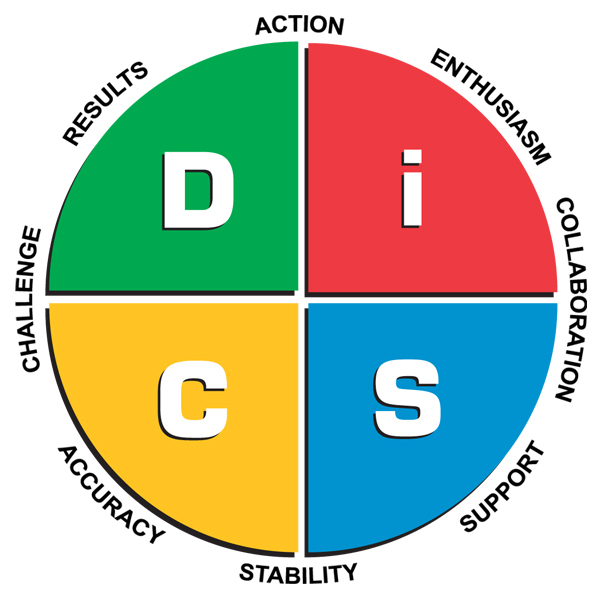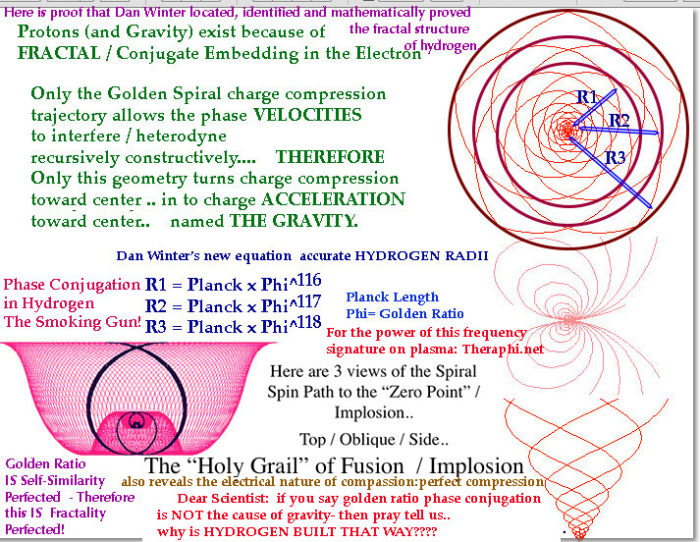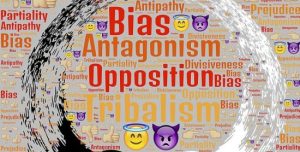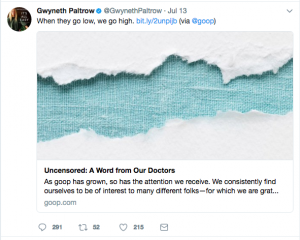Jan
17
2020
 Our skeptical colleagues over in Sweden have been tackling one of the most popular pseudosciences there (thanks to Swedish Skeptics president Pontus Böckman for the heads up) – their “Fraudster of the year in 2018 was author Thomas Erikson for his book Surrounded by Idiots. The book popularized a dubious personality test known as DiSC, which uses four colors to characterize personality types, red, green blue, and yellow. The book is a best seller in Sweden and is now being exported to many languages. It is also incredibly popular in corporate culture.
Our skeptical colleagues over in Sweden have been tackling one of the most popular pseudosciences there (thanks to Swedish Skeptics president Pontus Böckman for the heads up) – their “Fraudster of the year in 2018 was author Thomas Erikson for his book Surrounded by Idiots. The book popularized a dubious personality test known as DiSC, which uses four colors to characterize personality types, red, green blue, and yellow. The book is a best seller in Sweden and is now being exported to many languages. It is also incredibly popular in corporate culture.
Dan Katz, licensed psychologist and psychotherapist, does a great job of breaking down why Erikson’s claims are not based on science. I’m not going to repeat his article, just read the original. The short version is that Erikson has no qualifications, and the DiSC model is not based on any scientific evidence. The entire thing is a giant scam. What I do want to do is extend the discussion about personality tests in general.
The core scientific question behind any personality test is this – is there even such a thing as a personality type? The current best short scientific answer is – mostly no. But let’s get a bit deeper and more nuanced. First we need to distinguish personality traits from personality types. A personality trait is simply a behaviorial tendency that someone has that transcends any particular context and is consistent over long periods of time. Introversion/extroversion is probably the best established personality trait. The big five personality trait spectra that are the best established and are generally accepted by psychologists are OCEAN – openness, conscientiousness, extroversion, agreeableness, and neuroticism.
But we have to acknowledge that these are just cultural and scientific constructs. They are our best attempt at understanding some of the building blocks of personality, but we don’t know if they are bedrock, meaning that they are real neurological phenomena. My sense is that introversion/extroversion probably is a fundamental neurological phenomenon – one reason for this is that there are known genetic disorders that have extremely consistent extroversion personality traits.
Continue Reading »
Aug
27
2019
 Acupuncture is defined as an intervention involving placing thin needles into specified acupuncture points in order to relieve symptoms or promote healing. What is special about the acupoints? They are supposed to be locations where the flow of life force (chi) can be manipulated. There are a few problems with the claims made for acupuncture. First, there is no place for vitalism – belief in a life force – in modern science. There is no evidence that it exists and no reason to hypothesize that it exists. It is worse than wrong. It is unnecessary. There is also no convincing evidence, after a century of research and thousands of studies, that acupuncture works for anything.
Acupuncture is defined as an intervention involving placing thin needles into specified acupuncture points in order to relieve symptoms or promote healing. What is special about the acupoints? They are supposed to be locations where the flow of life force (chi) can be manipulated. There are a few problems with the claims made for acupuncture. First, there is no place for vitalism – belief in a life force – in modern science. There is no evidence that it exists and no reason to hypothesize that it exists. It is worse than wrong. It is unnecessary. There is also no convincing evidence, after a century of research and thousands of studies, that acupuncture works for anything.
But also, an independently fatal flaw in the notion of acupuncture is that there is no evidence that acupuncture points exist. They are a complete fiction. They have no basis in anatomy, physiology, neuroscience, biochemistry, or empirical evidence. A recent study highlights this fact – Accuracy and Precision in Acupuncture Point Location: A Critical Systematic Review. This is a review by acupuncturists in the Journal of Acupuncture and Meridian Studies. The authors reviewed the literature for any studies that looked at the precision and reliability of the location of acupoints and found:
Considerable variation in localization of acupoints was reported among qualified medical acupuncturists. Variation in point location among qualified non-medical acupuncturists is unknown due to lack of any identified study. The directional method was found to be significantly inaccurate and imprecise in all studies that evaluated the method.
So acupuncturists cannot agree upon where alleged acupoints actually are on the body, and the primary method to localize them was both inaccurate and imprecise. The simplest explanation for this fact is that acupoints don’t exist. Even if you want to hold out the illogical conclusion that acupoints do exist, even though they have no basis in theory and they cannot be detected by any objective measure, you cannot avoid the conclusion based on this evidence that acupuncturists don’t know where they are. So how, then, can they claim to be able to stick needles into acupoints? Short answer – they can’t.
Continue Reading »
Mar
11
2019
 These are always amusing, but I do admit to a little bit of guilt. My concern is that the individuals involved may be diagnosable, and is it really fair to publicly criticize their “work.” But then I realize I cannot diagnose people from afar, and they placed their work in the public arena, so it’s fair game.
These are always amusing, but I do admit to a little bit of guilt. My concern is that the individuals involved may be diagnosable, and is it really fair to publicly criticize their “work.” But then I realize I cannot diagnose people from afar, and they placed their work in the public arena, so it’s fair game.
What I am talking about are extreme cranks, and a particular flavor of cranks that believe they have developed what is derogatorily called a “theory of everything.” These are theories that attempt to explain the ultimate nature of reality – of space, time, fundamental forces, and even the meaning of life – but are not truly scientific. Such individuals have always existed in some form, and the internet has given them a new venue to rapidly spread their bizarre claims.
The now iconic example of the extreme theory-of-everything internet crank is “the time cube guy.” He became famous (as an internet meme) for his endlessly scrolling webpage filled with incoherent technobabble, peculiar fonts and formatting, and boasts about how much smarter he was than famous scientists. For many this was their introduction into the world of crankery. Many scientists were already very familiar, however, being on the receiving end of occasional massive tomes of self-published nonsense, eager for their attention.
A new crank theory of everything is making the rounds, at least within skeptical corners of the internet – Dan Winter, who is pushing his theory – Phase Conjugate Fractality: HOW Gravity is CAUSED. (formatting in the original)
Continue Reading »
Dec
18
2018
 I don’t usually do lists, but I do find it interesting to look back over the past year and review major events and trends. It’s good for the memory, and the exercise always reminds me of how terrible memory is. I often realize that I forgot about major events, and also have a poor sense of how far in the past certain events occurred. (Was that this year or last year?)
I don’t usually do lists, but I do find it interesting to look back over the past year and review major events and trends. It’s good for the memory, and the exercise always reminds me of how terrible memory is. I often realize that I forgot about major events, and also have a poor sense of how far in the past certain events occurred. (Was that this year or last year?)
So here are the pseudosciences from 2018 that I think deserve to be remembered. I am going to list them in no particular order, and just keep adding them until I run out of time.
Climate Change Denial
It does seem that 2018 may have been a bit of a turning point for the recognition that climate change is real, imminent, and deserving of far more attention and priority than we are giving it. There were multiple reports all agreeing that essentially the problem is worse than we thought, we have less time than we thought, and we better get cracking. The IPCC, for example, pointed out that even if we keep warming to 1.5C above pre-industrial levels, an ambitious and probably not achievable goal, bad things will still happen, just not as bad if warming goes beyond that point. A US government report echoes this, adding that further warming will be economically damaging and it is cost-effective to prevent it rather than deal with the consequences.
Several surveys also show that people are increasing concerned about climate change. Even some conservatives admit they were wrong on climate change. Even the writers of South Park admitted their prior error in an apology series of episodes to Al Gore.
Therefore, perhaps the worse pseudoscientists of 2018 is anyone still denying that climate change is a real problem that needs to be dealt with. The denialist strategies have not changed – no, the Earth is not warming, well if it is it’s not due to human causes, well even if we are causing it the results won’t be bad, well even if they will be bad there is nothing we can do about it anyway, and whatabout China? Like all pseudosciences they start with the desired conclusion – that we don’t need to do anything about it, just keep burning fossil fuels, and then they reverse engineer a justification for that conclusion.
Continue Reading »
Oct
30
2018
 A new report looking at vaccine confidence in the EU shows some troubling trends. Belief in the safety and effectiveness of vaccines seems to be very regional. We see this in the US as well as Europe. In this survey they found:
A new report looking at vaccine confidence in the EU shows some troubling trends. Belief in the safety and effectiveness of vaccines seems to be very regional. We see this in the US as well as Europe. In this survey they found:
The results of the survey suggest that a number of member states – including France, Greece, Italy, and Slovenia – have become more confident in the safety of vaccines since 2015; while Czech Republic, Finland, Poland, and Sweden have become less confident over the same period.
In some countries anti-vaxxers have a stronger foothold, and are actually decreasing acceptance of vaccines. But there are two other trends that are more disturbing. First, in the countries with decreasing vaccine acceptance there is high levels of vaccine skepticism among general practitioners.
While GPs generally hold higher levels of vaccine confidence than the public, the survey found that 36% of GPs surveyed in Czech Republic and 25% in Slovakia do not agree that the MMR vaccine is safe and 29% and 19% (respectively) do not believe it is important.
Those are shockingly high numbers for physicians. This is one of my greatest fears about the advance of alternative medicine and anti-scientific medical views – that they will affect the medical profession itself. Once unscientific ideas creep into the culture of medicine, the game is all but lost. This is why teaching pseudoscience in medical school is such an alarming problem. In this survey, the countries with higher levels of GP vaccine skepticism, had higher levels of public skepticism and lower levels of vaccine compliance.
Continue Reading »
Mar
19
2018
 In the 1970s and 80s belief in the paranormal was the most common target of skeptics. Topics like extrasensory perception (ESP), astrology, and faith healing were at the top of the list of skeptical concerns. In the last 30 years skepticism has evolved quite a bit, and while we never stopped being watchdogs on paranormal beliefs and other pseudosciences, they did mostly fade into the background. Other topics, such as science denial and the rise of fake news, took center stage.
In the 1970s and 80s belief in the paranormal was the most common target of skeptics. Topics like extrasensory perception (ESP), astrology, and faith healing were at the top of the list of skeptical concerns. In the last 30 years skepticism has evolved quite a bit, and while we never stopped being watchdogs on paranormal beliefs and other pseudosciences, they did mostly fade into the background. Other topics, such as science denial and the rise of fake news, took center stage.
But history has shown that there is often a cycle to such things. Interest in UFOs has waxed and waned over the years, for example, never going away completely, but fading and then rising again to prominence as a new generation discovers the topic.
Still, we do like to think we are making some progress through exposure and education. We have tried to interact frequently with the press so that at least the skeptical point of view will get better exposure when such topics are addressed. One solid victory was when the BBC announced they will no longer follow a pattern of false balance when dealing with science denial – putting a crank up against the consensus of scientific opinion as if they were equal.
A recent episode of CBS Sunday Morning about ESP, however, was worse than false balance, it was a throwback to the early days of credulous reporting about the paranormal with only token skepticism. Not that token skepticism was gone, but it has become more rare, especially from a major network or news outlet.
The piece, by Erin Moriarty, is a complete journalistic fail. It was the kind of piece we used to see thirty plus years ago before the skeptical movement had any traction. It is a perfect example of what we call token skepticism – a piece that is utterly gullible except for a very brief talking head skeptic who says something generic, like, “There is no scientific evidence to support this.” The token skepticism is immediately negated, however, by some response from the true-believer, a response the skeptic is never allowed to respond to in turn.
Continue Reading »
Feb
09
2018
 Here we go again.
Here we go again.
If you are in a decision-making position at an institution of higher learning than you have a responsibility to understand and protect the academic reputation of that institution. Further, such institutions (many of which, as in this case, are publicly funded) have a responsibility to society, to promote academic standards and legitimacy. At the very least such institutions should not be promoting pseudoscience, or dressing up any nonsense as if it were real.
Georgian College in Ontario has approved funds and plans to open a program that will teach homeopathy as if it is real medicine. Teaching any pseudoscience is an outrage, but when it is medical pseudoscience there is also arguably another layer of malfeasance because the connection to real harm is more direct.
I know this is old territory here, but for review: Homeopathy is a prescientific philosophy-based system based on magical thinking. Its core ideas were never valid, and have never been supported by science. Essentially, homeopathy uses fanciful treatments that are based on silly ideas, such as the personality of the patient, but also “sympathetic magic.” The belief is that homeopathic remedies contain the magical essence of symptoms and can be used to cure those same symptoms.
Then, doubling down on the idea of magical essence, all actual substances are diluted out of existence, so that only the essence remains. Therefore, in reality, only water remains. Homeopathy is literally treating people with magic water created with rituals resembling witchcraft, and without the tiniest bit of scientific legitimacy.
Continue Reading »
Feb
06
2018
 A recent systematic review and meta-analysis of the effects of mindfulness meditation on prosocial behavior found, essentially, that there is no evidence that it works. I find these results entirely unsurprising, and they yet again highlight the need for rigorous research before concluding that a phenomenon is real.
A recent systematic review and meta-analysis of the effects of mindfulness meditation on prosocial behavior found, essentially, that there is no evidence that it works. I find these results entirely unsurprising, and they yet again highlight the need for rigorous research before concluding that a phenomenon is real.
As I discussed recently on SBM, mindfulness meditation is the practice of sitting quietly, focusing inward and on the present, and avoiding mind wandering or daydreaming. The recent review I discussed on SBM found that the research into mindfulness, however, does not use a uniform or operationalized definition. That is critical to good science – you need to carefully define something before you can do research on it.
It is especially important to specifically define a concept in order to do research into the question of whether or not the phenomenon is real. If your question is, “Does X exist,” you better have a very specific definition of what X is. Otherwise it is easy to misinterpret the evidence, or to wiggle out of evidence that X does not exist.
The best example of this in medicine is acupuncture. Acupuncture is defined as sticking thin needles into acupuncture points – except when research shows that it does not matter where or even if you stick the needles, then acupuncture can be something else, which is vaguely defined.
Continue Reading »
Aug
14
2017
 In the early days of my skeptical career I spent time investigating and deconstructing classic pseudosciences, like belief in Bigfoot, astrology, UFOs, and ghosts. I was often challenged as to why I even bothered – these are all silly but harmless beliefs. Is it really worth the time to dissect exactly why they are nonsense?
In the early days of my skeptical career I spent time investigating and deconstructing classic pseudosciences, like belief in Bigfoot, astrology, UFOs, and ghosts. I was often challenged as to why I even bothered – these are all silly but harmless beliefs. Is it really worth the time to dissect exactly why they are nonsense?
But my fellow skeptics and I knew the answer. We were interested not so much in the beliefs themselves but the believers. How does someone get to the point that they believe that the relative position of the stars at the moment of their birth could influence the wiring in their brain and even their destiny? At the time I think the answer most activist skeptics, including myself, would give was scientific illiteracy. People simply lack knowledge of science and fills the gaps with entertaining fantasy.
Lack of scientific knowledge definitely plays a role, and is an important problem to address, but it was naive to think it was the main cause. Such explanations do not survive long with contact with actual believers. It becomes rapidly clear that the primary malfunction of true believers is not a lack of information or scientific savvy. It’s something else entirely.
My explanations for why people believe nonsense then evolved into stage 2 – a lack of critical thinking skills. Scientific knowledge needs to be coupled with an understanding of epistemology (how we know what we know), logic, cognitive biases and heuristics. This view, that belief in nonsense is mainly a failure of critical thinking, is a lot closer to the truth. Our strategy for fighting against belief in pseudoscience and magic evolved into promoting not only scientific literacy but critical thinking skills.
Continue Reading »
Jul
17
2017
 In my last post I discussed how Paltrow and her people over at goop launched a personal attack against Dr. Jen Gunter, an OB/GYN blogger who has taken the time to point out a lot of the nonsense that goop sells. Goop has been criticized by many science bloggers and mainstream outlets for fearmongering to women in order to sell dubious products.
In my last post I discussed how Paltrow and her people over at goop launched a personal attack against Dr. Jen Gunter, an OB/GYN blogger who has taken the time to point out a lot of the nonsense that goop sells. Goop has been criticized by many science bloggers and mainstream outlets for fearmongering to women in order to sell dubious products.
For some reason “team goop” did not go after Science-Based Medicine, or Tim Caulfield, or Steven Colbert – they went after one humble medical science blogger. This is particularly ironic because Gunter’s blogging career is all about empowering women with science-based information, about advocating for women’s health and autonomy. I can only suppose that goop went after her because they felt particularly stung by her on-target criticism, or perhaps they thought she was an easy target for bullying.
The irony is thickened by including a response from Dr. Steven Gundry, who takes a particularly condescending tone and actually earns the often overused description of “mansplaining.”
The result was the typical litany of alternative medicine tropes, bad logic, and bad science, wrapped in a personal attack against Gunter. But they did leave themselves wide open for poking some additional fun at them, in order to point out how intellectually vacuous and dishonest they are. Dr. Gunter just drove a Mack truck through that opening.
Continue Reading »
 Our skeptical colleagues over in Sweden have been tackling one of the most popular pseudosciences there (thanks to Swedish Skeptics president Pontus Böckman for the heads up) – their “Fraudster of the year in 2018 was author Thomas Erikson for his book Surrounded by Idiots. The book popularized a dubious personality test known as DiSC, which uses four colors to characterize personality types, red, green blue, and yellow. The book is a best seller in Sweden and is now being exported to many languages. It is also incredibly popular in corporate culture.
Our skeptical colleagues over in Sweden have been tackling one of the most popular pseudosciences there (thanks to Swedish Skeptics president Pontus Böckman for the heads up) – their “Fraudster of the year in 2018 was author Thomas Erikson for his book Surrounded by Idiots. The book popularized a dubious personality test known as DiSC, which uses four colors to characterize personality types, red, green blue, and yellow. The book is a best seller in Sweden and is now being exported to many languages. It is also incredibly popular in corporate culture.
 Acupuncture is defined as an intervention involving placing thin needles into specified acupuncture points in order to relieve symptoms or promote healing. What is special about the acupoints? They are supposed to be locations where the flow of life force (chi) can be manipulated. There are a few problems with the claims made for acupuncture. First, there is no place for vitalism – belief in a life force – in modern science. There is no evidence that it exists and no reason to hypothesize that it exists. It is worse than wrong. It is unnecessary. There is also
Acupuncture is defined as an intervention involving placing thin needles into specified acupuncture points in order to relieve symptoms or promote healing. What is special about the acupoints? They are supposed to be locations where the flow of life force (chi) can be manipulated. There are a few problems with the claims made for acupuncture. First, there is no place for vitalism – belief in a life force – in modern science. There is no evidence that it exists and no reason to hypothesize that it exists. It is worse than wrong. It is unnecessary. There is also  These are always amusing, but I do admit to a little bit of guilt. My concern is that the individuals involved may be diagnosable, and is it really fair to publicly criticize their “work.” But then I realize I cannot diagnose people from afar, and they placed their work in the public arena, so it’s fair game.
These are always amusing, but I do admit to a little bit of guilt. My concern is that the individuals involved may be diagnosable, and is it really fair to publicly criticize their “work.” But then I realize I cannot diagnose people from afar, and they placed their work in the public arena, so it’s fair game. I don’t usually do lists, but I do find it interesting to look back over the past year and review major events and trends. It’s good for the memory, and the exercise always reminds me of how terrible memory is. I often realize that I forgot about major events, and also have a poor sense of how far in the past certain events occurred. (Was that this year or last year?)
I don’t usually do lists, but I do find it interesting to look back over the past year and review major events and trends. It’s good for the memory, and the exercise always reminds me of how terrible memory is. I often realize that I forgot about major events, and also have a poor sense of how far in the past certain events occurred. (Was that this year or last year?) A
A In the 1970s and 80s belief in the paranormal was the most common target of skeptics. Topics like extrasensory perception (ESP), astrology, and faith healing were at the top of the list of skeptical concerns. In the last 30 years skepticism has evolved quite a bit, and while we never stopped being watchdogs on paranormal beliefs and other pseudosciences, they did mostly fade into the background. Other topics, such as science denial and the rise of fake news, took center stage.
In the 1970s and 80s belief in the paranormal was the most common target of skeptics. Topics like extrasensory perception (ESP), astrology, and faith healing were at the top of the list of skeptical concerns. In the last 30 years skepticism has evolved quite a bit, and while we never stopped being watchdogs on paranormal beliefs and other pseudosciences, they did mostly fade into the background. Other topics, such as science denial and the rise of fake news, took center stage. Here we go again.
Here we go again. A recent systematic review and meta-analysis
A recent systematic review and meta-analysis In the early days of my skeptical career I spent time investigating and deconstructing classic pseudosciences, like belief in Bigfoot, astrology, UFOs, and ghosts. I was often challenged as to why I even bothered – these are all silly but harmless beliefs. Is it really worth the time to dissect exactly why they are nonsense?
In the early days of my skeptical career I spent time investigating and deconstructing classic pseudosciences, like belief in Bigfoot, astrology, UFOs, and ghosts. I was often challenged as to why I even bothered – these are all silly but harmless beliefs. Is it really worth the time to dissect exactly why they are nonsense? In my last post
In my last post




